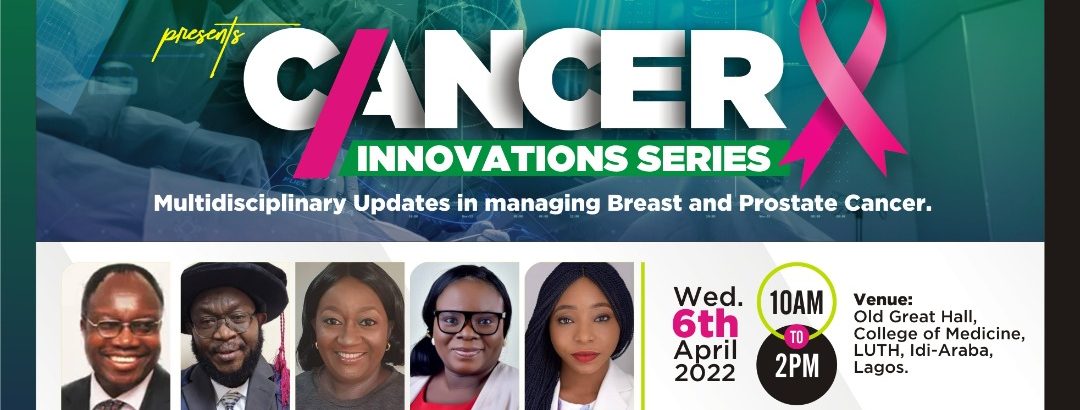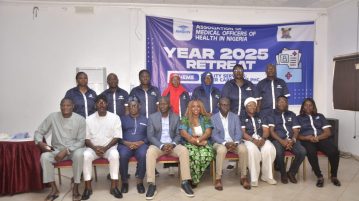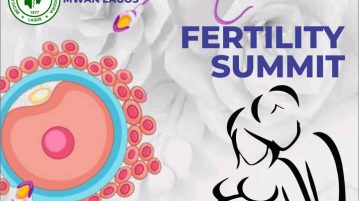At the cancer innovation series for multidisciplinary approach in managing breast and prostate cancer, experts highlighted that, with evolving cancer innovations in our world today, Breast and Prostate Cancers are treatable. However, our issue in Nigeria is late diagnosis and mismanagement on the part of patients…
During this academic hybrid event which took place in LUTH, and was organised by the Nigerian Medical Association (NMA Lagos) in collaboration with WECHA (we change health for all), several experts and care givers involved in management of cancers including survivor patients were brought together to discuss and learn about the innovations in cancer management for better outcomes.
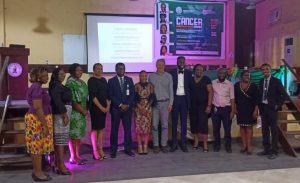
Dr Abdulrazzaq Lawal, a Breast Surgeon in LUTH talked about “Update on the Surgical Management of Breast Cancer and Advances in Breast Reconstruction Surgery”. He mentioned that we must “ensure a multidisciplinary approach in treating cancers”, also stating that a mastectomy should only be carried out on patients with advanced cancers and those with early stage cancers – after their biopsy results are out. He emphasized that “It is criminal of a physician to diagnose a patient with cancer without completing the Triple Assessment: Clinical examination, pathological results and radiographic imaging”. Further highlighting the steps in managing breast cancer, which include; proper history taking, clinical breast examinations, radiological investigations, biopsy, receptor studies (E, P, Her2), staging and treatment (Adjuvant/neo Adjuvant chemotherapy and surgery).
He further explained that “the one cap fit all mode of treatment must be discouraged” and that the LCIS (Lobular Carcinoma In Situ) is not regarded as a pre neoplastic lesion of the breast, hence may be treated with annual surveillance only. However, DCIS (Ductal Carcinoma In Situ) is a pre neoplastic lesion and should be treated via surgery. Surgery should be done based on patient’s preference, stage and type (hormone responsive or not) of tumor. The surgery can be of two types: Breast conservative/breast ablative surgery and Axillary node surgery which is done in advanced stages (Sentinel lymph node – SLN positive). Also the Mastectomy types are radical, nipple sparing, skin sparing and toilet mastectomy, while breast reconstructive surgeries are with autologous grafts, reducing the size of the other breast.
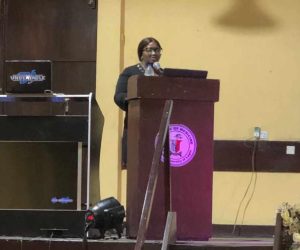
Dr Abimbola Abolarinwa, the first female Urologist in Nigeria from LASUTH talked about “Current Focus in the Management of Prostate Cancer: Early Diagnosis and Treatment Options in Nigeria”. She particularly stated that prostate cancer is one of the leading kinds of cancers in men and that Nigerian men are the most genetically predisposed to prostate cancer among all other races. Most of the prostate cancers are usually asymptomatic at presentation, but most times, a lot of patients present in the later stages with lower back, acute urinary retention, paraesthesia, bone pains and paralysis. She stressed on the fact that “A digital rectal examination (DRE) must always be done upon presentation, because this saves lives”. Investigations include Prostate specific antigen (PSA), full blood count (FBC), Abdominal and Abdomino-pelvic ultrasound scan, computerized tomography (CT), magnetic resonance imaging (MRI), fine needle aspiration Cytology (FNAC), Tc99 bone scan to check for spread and other markers are Kallikrein, PAP and prostate Cancer gene.
On assessment of patient with prostate tumor, a Gleason’s score of 6 shows a low grade tumor, 7 is intermediate, 8 and above is a high grade tumor. Also, she stated that management may from watchful waiting (along with active surveillance) depending on the age and tumor stage/grade, to prostatectomy, brachytherapy, radiotherapy, external beam radiation, orchidectomy, and hormonal therapy. Some of the medications mentioned for management are the Gonadotropin releasing hormone agonists and antagonist. She concluded highlighting that, “Medical castration is better than Surgical castration because it can be easily controlled and it gives a more central inhibition of testosterone”.
Cancer Screening from the age of 45 is a must for every man and woman.
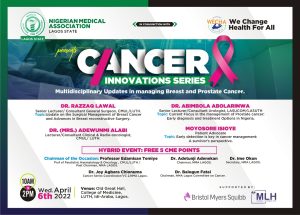
Another speaker, a Radiologist from LUTH – Dr Olubukola Omidiji – spoke about “The Role of Radiology in the Management of Breast and Prostate Cancer”. She emphasized on the need for Early detection because “Early detection saves lives”. Further stating that screening should be done regularly; Females between 16-39 years must have annual clinical breast examination and ultrasound scan (USS), and above the age of 40 must have annual clinical breast examinations and mammogram for low risk women. While Women who have a family history of breast cancers must have monthly breast examinations, biennial mammogram, USS from 20 years and annual MRI if affordable.
Mrs Moyosore Isioye, a beautician and a cancer survivor at 30 years spoke on the topic “Early Detection is Key in Cancer Management: A Survivor’s Perspective”. She emphasized on the need for Early detection, and shared her experience with breast cancer. She narrated how she started her breast examinations early because her first degree relatives had breast cancer and acted upon it immediately. She also had a mastectomy without holding on to any sentiments, because she said “it’s better to be alive without breast than to die of breast cancer”. Finally, she urged patients not to think about the stigma, but rather aim to live a good life and recommended that the government intervenes in subsidizing the cost of cancer management in Nigeria.
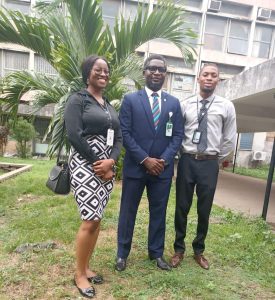
About Author:
Deborah Ojo is a preventive health enthusiast and fourth year medical student in the College of Medicine University of Lagos, Nigeria.

